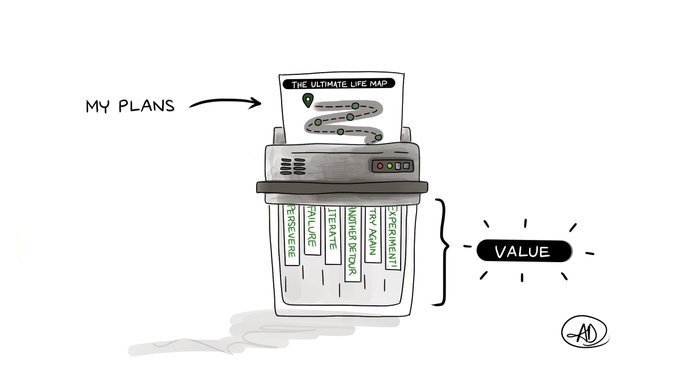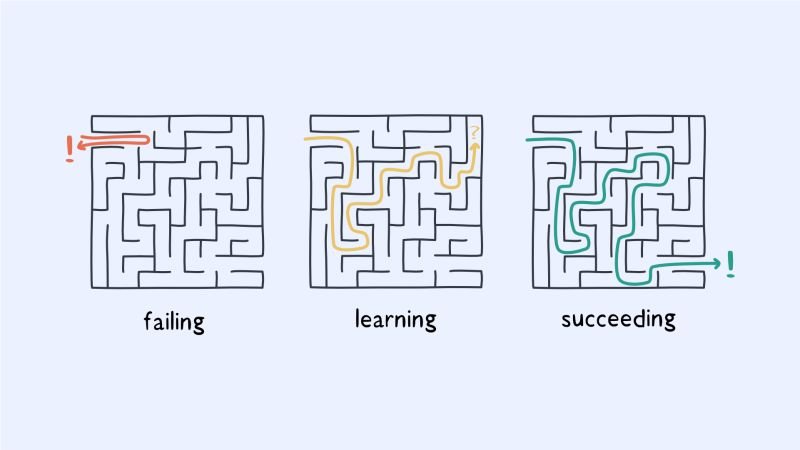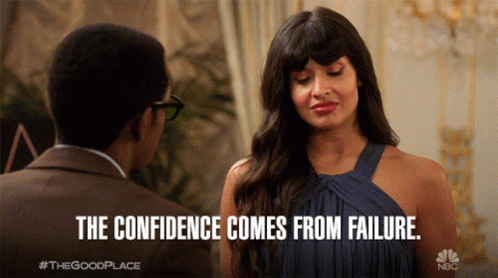Learning Nerd’s Diary #75
Welcome back Learning Nerds!
This week we dive deeper into the many folds of failure. I’m in quite the alliteration zone this week - is it obvious? Anyhow - from failure having a bad rep to sharing a very personal story of failure. Let’s dive in!
Are you?
👀 Sneak peak
Here is what I have in store for you this week -
💭 Learning About Learning: Embracing the F-Word
🥜 Learning Nugget: Thomas Edison’s Legacy
💥 Coolest Thing I Learnt This Week:
Don’t curse your dead ends and failures
You can only fail when you don't even try
Just do it!
🔦 Spotlight: Meet Panda
💭 Learning About Learning
Failure has a bad rep. (The F-word is failure - what did you think? Gosh!)
When you don't score enough in a test you 'fail'.
You consider yourself a ‘failure’ when you're business doesn't succeed.
Don’t get me wrong - in both the above moments you feel like shit. You feel disheartened and lose confidence in your own ability to do something. But failure is inherently not bad.
Imagine trying to learn how to ride a bike without falling.
Or learning how to cook without burning it even impossible?
Failure is critical to learning.
Here are 3 ways in which you can use failure to learn better:
1/ Inversion Thinking 🪞
While trying to learn something new, instead of trying to think of the best way to do something - flip the question! Think of the worst way to do it.
Example:
While learning how to bake bread - think of what is the worst way to bake a loaf. Write down the recipe in detail
While trying to speak in public - think of the worst way to do it. Visualise or even better, enact it out in front of a mirror
By flipping the question and holding the space to make the biggest and the best mistakes - you will end up applying your learning in new ways!
2/ Spot the Failure 🎯
Try to identify mistakes and errors in people or things around you. Spot points of failure.
Example:
While learning how to bake bread - sample breads from different bakeries. Try to analyse what is good and bad in each of them. Think of why that might be the case.
While trying to speak in public - observe other people do it. See where they failed. Think of what mistake they made and how you would fix it.
Being able to identify failure can be a great tool for learning!
3/ Failure → Feedback 🔁
Look at failure as a milestone to pause, learn and then iterate.
Example:
While learning how to bake bread if you mess up a load (or four!) reflect on what went wrong & what do you need to do differently
While trying out public speaking - try to record your speeches & replaying them again. Chances are you will find opportunities where you might have fumbled & identify ways in which you can improve.
Failure is not powerful without reflection. If you come across failure, reflect and unpack what happened and what could be better the next time around. Make new mistakes!
Failure should not be feared or shunned, but rather embraced as a catalyst for growth & learning. I recently came across a visual that said Fail is actually an acronym for:
F = First
A = Attempt
I = In
L = Learning
So the next time you come face to face with the F-word - instead of trying to push it away, embrace it!
🥜 Learning Nuggets
“I never failed once at making a light bulb.
I have just found 10,000 ways that won’t work.”
— Thomas Edison
💥 Coolest Thing I Learnt this Week
Don’t curse your dead ends and failures.
They’re the key element of the work you are doing. We find our way by getting lost. Anything other than that is called reading a map.
— Seth Godin
You can only fail when you don't even try
Just Do It!
🔦 Spotlight
This week’s spotlight is slightly different. Meet Panda - my sourdough starter from the pandemic -
It died a tragic (& rather smelly) death after travelling with me across the country - but that’s a story for another day. The reason we’re taking about panda today is because it is a time I think when I failed gloriously. After keeping it alive for a couple of months across 2 cities and trying multiple experiments with it - most of which failed. I decided to stop feeding it - quite literally.
Panda was a great teacher for me on how to NOT learn something new - completely alone. What was your last failure and what lesson did it teach you?
Love & Learning
Until we meet next week, don’t forget -
You can get this directly in your inbox!







